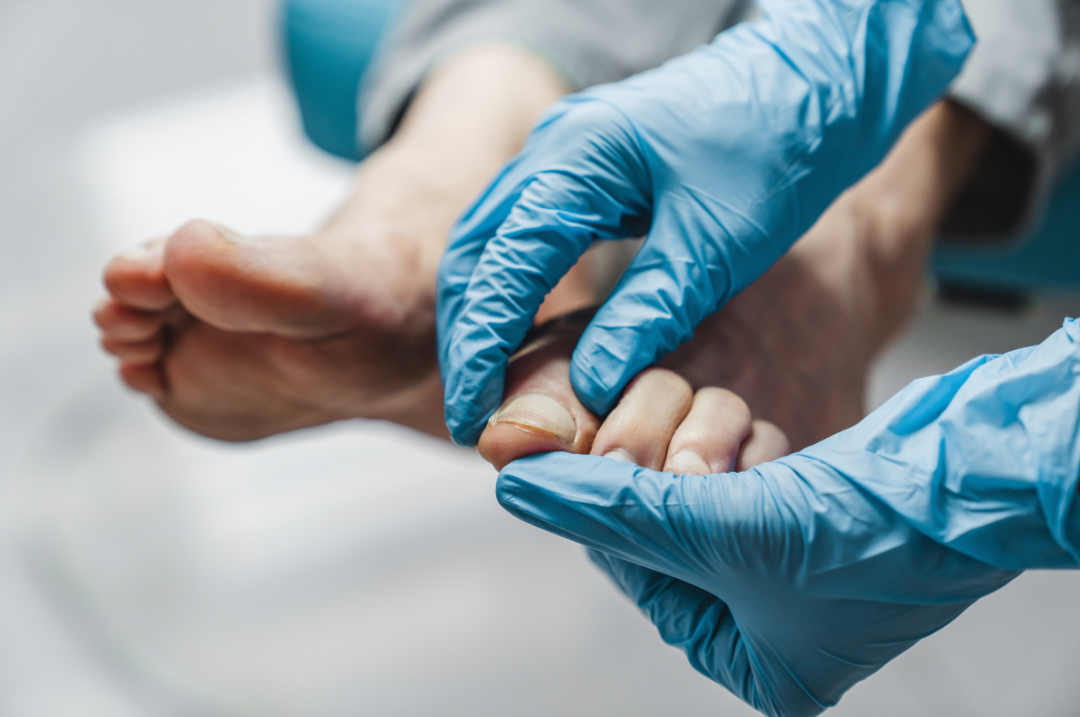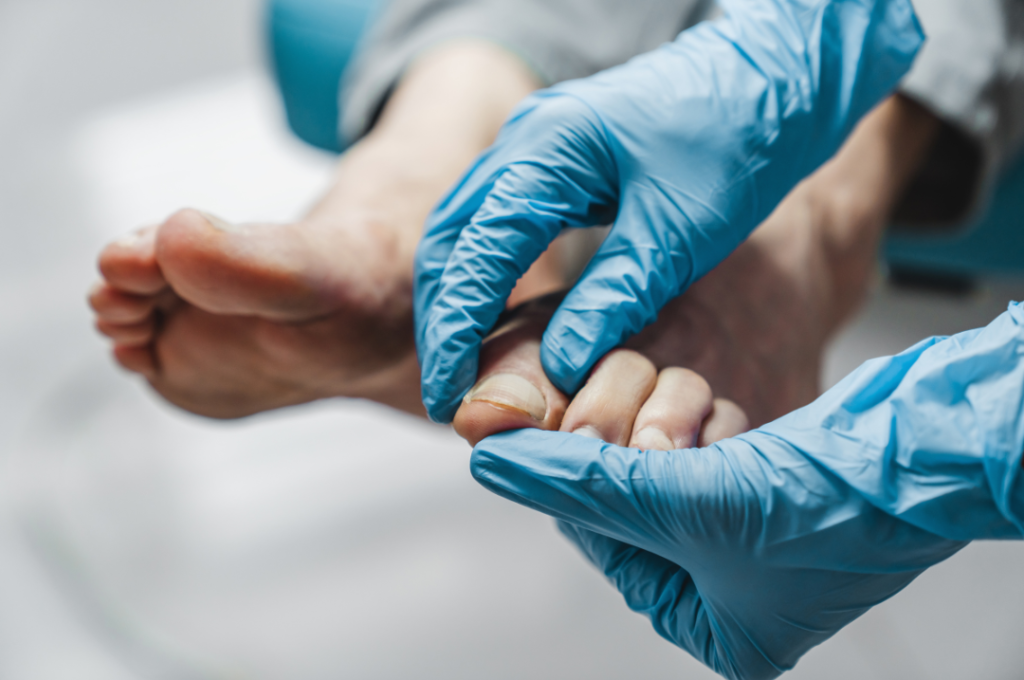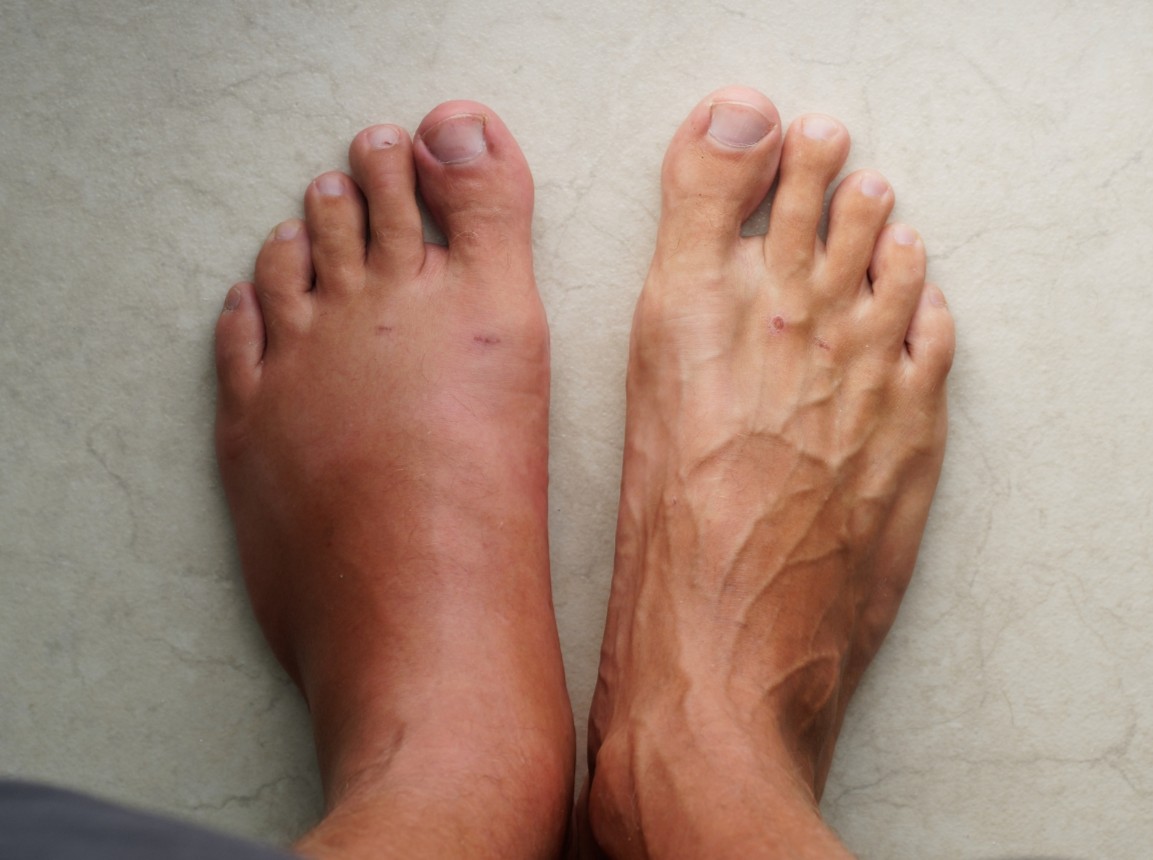


If you consider ingrown toenails to be the most debilitatingly painful problem given that it involves such a seemingly small nail, you’re
not alone. These are the exact same thoughts shared by most people who come into our ingrown toenail clinic to have their ingrown nails
professionally cared for – and often to get rid of them for good. But how do you know if your ingrown nail is fine to manage at home,
or if you should come in for professional treatment?
First thing first: an ingrown toenail occurs when the edge of a toenail grows into the surrounding skin rather than over it. Think of a small but sharp dagger piercing through healthy skin and staying embedded there – it’s actually very similar! This can result in pain, redness, swelling, and potential infection. Ingrown toenails most commonly affect the big toe, but any toe can be affected.
To spot an ingrown toenail, look for:
If your ingrown toenail is mild, you may try managing your symptoms at home by:
While home care can help with mild cases, you should consult a podiatrist if you experience the following:
Final Tip
Ingrown toenails can be simple for a health professional to manage – but only if they have the right tools, experience and knowledge. As a clinic that sees ingrown toenails day in and day out, we have refined our protocols and processes to ensure you get the very best care for your ingrown nail every time.
Each person’s treatment plan is uniquely tailored to their symptoms and circumstances to help you get the best long-term results. Our podiatrists take the time to discuss every step of the process, alongside all of your treatment options, and are here to help you or your child have the very best experience with their toenail treatment. We’re based in Remuera, in the One Health medical building, close to Newmarket. Call us on 09 523 2333 or book online here.

Valentine’s Day is about love, appreciation, and thoughtful gestures but let’s be honest, most gifts don’t last longer than a week. This year, choose something different. Choose a gift that offers comfort, confidence, and real care: a Medical Pedicure.

We’ve all had those days — you come home after hours on your feet, kick off your shoes, and notice your ankles look puffier than usual.
Swelling in the feet, ankles, or legs (known medically as edema) isn’t always a reason to panic. It can be as simple as a
salty lunch or a long flight.
But what if it’s happening more often — or seems to be getting worse? Swelling can sometimes be a sign of something more serious. Here’s
what could be going on and when to check in with your doctor.
Keeping your family on their feet and helping them to walk, run, play and exceed their goals is why we love getting up in the morning.
Ground Floor, One Health Building
122 Remuera Rd, Remuera
Auckland 1050, New Zealand
| MON - FRI | 7:30am – 6:30pm |
| SAT | 8:30am – 4:30pm |
| SUN | Some availability |
Make an Appointment
Online Schedule
Our virtual receptionist is available 24/7 to help with general questions, booking requests, and clinic information, even when our team is busy, or it's after hours.
Whether you're calling us or using our website, you'll get fast assistance any time of day. And if your query needs a personal touch, a member of our team will follow up as soon as possible.
If you’d like to see a podiatrist who speaks your preferred language, just give us a call and we’ll help you book.